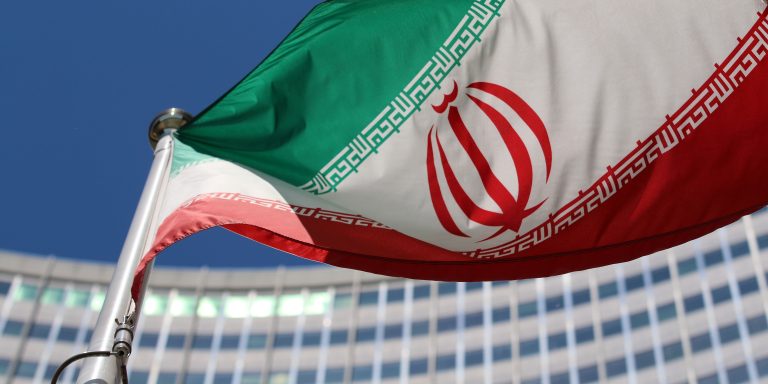INTELBRIEF
September 13, 2022
IntelBrief: Iran Nuclear Talks Again Draw Back from the Brink of Success

Bottom Line up Front
- The repeated failure to conclude multilateral talks to restore the 2015 Iran nuclear agreement reflects the deep-seated mistrust between Iran and the United States.
- The incentives for both the United States and Iran – curbing Iran’s nuclear program in exchange for sanctions relief – still favor an eventual agreement.
- The talks have most recently stymied over Iran’s insistence that investigations of past violations of its nuclear safeguards agreement end.
- An agreement would mitigate renewed upward pressure on global oil prices expected in late 2022.
Statements by European Union (EU) officials in mid-August suggested that Iran, the United States, and five other parties to the 2015 multilateral Iran nuclear agreement (Russia, China, France, the United Kingdom, and Germany) were close to concluding negotiations to restore full U.S. and Iranian compliance with that pact. The Trump administration exited the agreement in 2018 and attempted to place significant economic pressure on Iran’s regime by re-imposing all U.S. sanctions on Iran and adding sanctions beyond those previously in force. Undeterred, Iran began violating the terms of the accord by expanding its uranium enrichment activities in 2019, and, in early 2021, U.S. officials changed course, asserting that it is in the broad U.S. interest to try to return to the 2015 deal. U.S. leaders argued that the deal would benefit U.S. and regional security - even if the sanctions relief of the accord enables Iran to earn additional revenue that could conceivably be applied to modernizing its military or supporting pro-Iranian regional armed factions. Iran has been expanding its enrichment capabilities significantly, including enriching uranium to 60% purity - a level that is close to that required for a nuclear weapon. On September 7, the International Atomic Energy Agency (IAEA) assessed that Iran’s stockpile of 60% enriched uranium was enough for one nuclear bomb if Iran took the additional step of enriching to 90% purity, a step that experts say Iran could quickly manage. However, Iranian leaders assert that it is in Iran’s interests to obtain relief from crippling economic sanctions, even if doing so requires it to again dismantle much of its uranium enrichment infrastructure.
The essential logic of the 2015 accord for both the United States and Iran brought the talks to the brink of an agreement on several occasions in 2022, most recently in mid-August. In July, after several months of stalled talks, the top EU foreign policy official, Josep Borrell, assembled a “final text” of an accord that he asserted incorporated the maximum degree of compromise on the part of all parties. Throughout the remainder of the summer, the United States and Iran exchanged draft amendments to his text and reportedly narrowed their differences to the point where Borrell and other European officials expressed confidence that an agreement was imminent. The optimism was triggered, in large part, by Iran’s dropping demands that the United States revoke the 2019 designation of the Islamic Revolutionary Guard Corps (IRGC) as a foreign terrorist organization (FTO). Iran also appeared to accept the U.S. view that no U.S. president could provide Iran with guarantees that a future U.S. administration would not exit the deal while Iran was complying with it, as the Trump administration had done in 2018.
Yet, U.S., EU, and global officials hoping that an accord was at hand were disappointed by late August, as talks stalled again amid the ever-present mutual distrust between the United States and Iran. In response to U.S. suggested alterations to the EU’s “final text,” Iran reportedly restated its earlier demands for guarantees that a future U.S. administration could not again exit the deal. Iranian leaders appear to question whether the country should again dismantle its uranium enrichment infrastructure, particularly with the U.S. presidential election only two years away. The outcome could result in another U.S. cancellation of its commitments under the accord. Iran’s suspicions about the potential for opponents of the deal to accuse Iran of non-compliance contributed to its refusal to agree to further IAEA investigation into the traces of enriched uranium found at three undeclared nuclear research sites. In late August, U.S. officials termed Iran’s latest suggested amendments to the final text as “not constructive,” downplaying that an accord was imminent. The U.S. comments came amid high-level visits to Washington by senior Israeli leaders - who have generally opposed any revival of the 2015 Iran nuclear agreement - arguing against reported U.S. concessions in the revised deal. Israeli leaders and other opponents of the potential deal object to reported provisions that front-load some sanctions relief and allow Iran to store - rather than destroy - the enrichment centrifuges it is required to take offline.
The connection between an Iran agreement and the global energy picture cannot be underestimated. Each report that an agreement is at hand has stimulated optimism among U.S. and EU leaders that Iran might soon fully return to the global oil market and ease the upward pressure on world oil prices due to the Russian invasion of Ukraine. As world oil prices escalated in the months following Russia’s February invasion, U.S. officials appeared to intensify efforts to complete the negotiations to restore the nuclear deal. Some estimates project that the return of Iranian crude to international markets would occur at a rate of 1.3 million barrels per day (bpd), which would significantly ease global oil prices. Pricing pressures eased throughout the summer as China’s economy remained stalled by COVID-19 mitigation measures and small U.S. producers increased oil extraction. Still, upward pressures on prices might return in late 2022 when EU sanctions against the importation of Russian oil expand, and instability in other large producers such as Libya and Iraq escalate. Whether escalating oil prices might cause U.S. leaders to accept some previously rejected Iranian demands remains an open question.